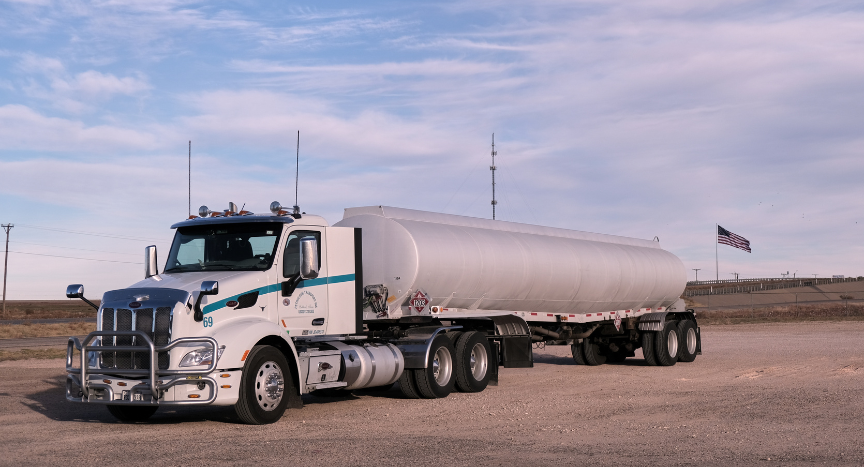Fuel expenses are one of the primary operational costs for trucking companies, affecting profit margins and overall business viability. However, fuel prices are typically unpredictable, with constant fluctuations disrupting budgets and financial strategies for fleets.
Mastering cost management is vital for staying competitive and maintaining profitability. By adopting effective fuel-saving strategies, carriers can gain a crucial edge in an uncertain industry.
This guide offers insights into fuel price volatility and outlines actionable solutions to help trucking businesses manage these challenges.
What Causes Fuel Price Volatility?
Fuel price variability stems from several interacting factors impacting global and local markets. Here’s a breakdown of the key contributors to this pricing instability.
Geopolitical Influences
International disputes, regional instability, and trade negotiations frequently impact oil supply, leading to disruptions and price shifts. Events like these can ripple through global markets, making steady budgeting a challenge for trucking companies.
Economic Shifts
The global economy directly influences fuel demand. During economic growth, prices tend to rise as demand surges; in recessions, reduced consumption typically leads to lower prices. The interplay between factors such as GDP growth, industrial production, and consumer spending adds complexity to this relationship.
Supply and Demand Imbalance
Global oil production rates, refinery infrastructure, and shifts in consumer behavior play significant roles in pricing. Organizations such as OPEC have immense influence over supply levels and crude oil costs, while changes in energy consumption trends add another layer of unpredictability.
Natural Disasters
Hurricanes, earthquakes, and similar events can disrupt oil production and transportation infrastructure, causing temporary price hikes. Such scenarios are particularly significant when they impact critical regions like major oil fields or refineries.
Regulatory Policies
Governments often introduce strict emissions standards and push for cleaner fuels, potentially increasing production costs. For instance, the mandatory switch to ultra-low sulfur diesel (ULSD) in the U.S. led to higher fuel prices. Similarly, carbon taxes and other environmental policies can influence pricing and availability, posing challenges for trucking companies.
Strategies to Manage Rising Fuel Costs
Navigating fluctuating fuel prices requires adopting thoughtful and strategic solutions designed to save costs without disrupting operations. Here are some proven approaches trucking companies can implement.
- Utilize Fuel Cards
Fuel cards are invaluable tools for trucking companies aiming to maximize savings on fuel while optimizing control over spending. Unlike traditional credit cards, fuel cards offer tailored benefits to fit trucking operations.
Key Benefits of Fuel Cards:
- Lower Fuel Costs: Fuel cards provide access to competitive pricing at partner truck stops nationwide, helping small fleets secure discounts that aren’t available otherwise.
- Purchase Tracking: Monitor transactions in real time to identify trends and improve fuel efficiency across your fleet.
- Fraud Mitigation: Advanced security features reduce unauthorized purchases, protecting smaller fleets with fewer internal controls.
- Customizable Controls: Set spending limits or designate approved fueling stations, improving cost management.
- Simplified Accounting: Streamline expense tracking and reduce administrative costs.
- Shop by Total Cost, Not Just Discounts
While larger truck stop chains often advertise steep fuel discounts, their base prices usually start higher than those at smaller, independent stations. For example, a Mom-and-Pop shop offering a $0.10-per-gallon discount can often deliver better value than a big brand offering a $0.25-per-gallon discount.
Tip: Use tools like the PorterFuel card, which provides performance benchmarks and market-related insights to make informed purchasing decisions.
- Plan Fuel Stops in Advance
Don’t wait until your fleet is running low on fuel to determine where to refuel. On routes between cities like Dallas and Chicago, for instance, refueling in Oklahoma or Missouri tends to be more cost-effective than Indiana or Illinois due to differences in taxation.
Leverage route-planning tools, like those offered by Porter Freight Funding, to find the cheapest fueling locations along predefined routes and plan accordingly.
- Explore Bulk Fuel Options
Purchasing fuel in bulk allows companies to lock in prices for extended periods, protecting against short-term fluctuations. The key advantages of bulk purchasing include cost stability, volume discounts, and improved financial forecasting.
Knowing fuel costs in advance also supports smoother operations during potential supply shortages or distribution delays.
- Prioritize Regular Vehicle Maintenance
Well-maintained vehicles are more fuel-efficient, directly reducing operational costs while improving overall performance. Adopting the following practices will help optimize your fleet’s fuel consumption:
- Oil Changes: Regular oil checks minimize engine friction, enhancing fuel efficiency.
- Proper Tire Inflation: Underinflated tires increase rolling resistance, causing unnecessary fuel waste.
- Air Filter Upkeep: Clean air filters boost engine performance, promoting better fuel economy.
- Engine Tuning: Periodically inspect and tune engines to ensure optimal functionality.
- Aerodynamic Enhancements: Use accessories like side skirts to minimize drag on long-haul trips.
- Optimize Driving Routes with Technology
Innovative routing software enables trucking companies to identify the most fuel-efficient paths, reducing costs and maximizing productivity.
Routing Strategies:
- Avoid congested areas and steep inclines.
- Reduce idle time caused by traffic delays.
- Plan fuel stops strategically at stations with the best prices.
- Monitor driver behavior, optimizing acceleration, braking, and speed patterns for efficiency.
- Adjust routes dynamically based on real-time traffic or weather information.
Why Choose Porter Freight Funding’s Fuel Card?
Fuel price volatility doesn’t have to put your profit margins at risk. Porter Freight Funding is offering a purpose-built fuel card tailored for small and medium-sized fleets. Along with consistently low prices, the card provides essential tools like spending controls, real-time reporting, and fraud safeguards to help you stay ahead of fluctuating costs.
Source: Porter Freight Funding











